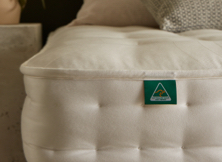If you were sleep deprived for a week, after several days you’d be almost completely unable to function.
That’s why Amnesty International lists sleep deprivation as a form of torture.
If you decide to go on a fast and starve yourself for a week, at the end of seven days how would you be feeling? You’d definitely be hungry, weak and almost certainly somewhat thinner. But you’d be able to recover and be fine.
Why is sleep one of the first things we’re willing to sacrifice as the demands in our lives keep increasing? We continue to live by a remarkably durable myth: sleeping one hour less will give us one more hour of productivity. In reality, the research suggests that even small amounts of sleep deprivation take a significant toll on our health, our mood, our cognitive capacity and our productivity.
Many of the effects we suffer are invisible. Insufficient sleep, for example, deeply impairs our ability to consolidate and stabilise learning that occurs during the waking day. In other words, it wreaks havoc on our memory.
So how much sleep do you need? When researchers put test subjects in environments without clocks or windows and ask them to sleep any time they felt tired, 95% slept between seven and eight hours out of every 24. Another 2.5% slept more than eight hours. That means just 2.5% required less than 7 hours of sleep a night to feel fully rested.
With sufficient sleep, you feel better, work with more focus and manage emotions better, which is good for everyone.

































